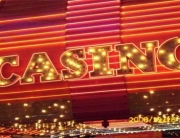
Steve Karoul is a recognized casino consultant with 35 years of hands-on experience with the best casinos both within the United States and internationally. He is also an authority on all aspects of casino marketing. Steve has lived in numerous countries and has conducted casino marketing activities in well over 100 countries around the world. He is an author, a lecturer and an educator who often injects his own hands on experiences and openly shares his ideas and thoughts with fellow industry executives. Telephone +(1-860) 536-1828 or skaroul@comcast.net or see www.euroasiacasino.com
For those of you that continue to follow my series of articles on Casino Marketing, you have heard me over and over say that the casino business today is not about making money, it is about creating value. I sincerely believe that because people are not stupid. Human beings all are motivated by basically the same things. Value is one of the top motivators when it comes to selection or shopping. However, from the casino operator’s perspective, we do have to pay attention to bottom line profitability. Creating “Value” will help to bring customers to your casino. Managing that business properly to make a profit oftentimes involves a completely different set of criteria.
Nobody ever wants to lose business or lose customers. However, not all business and not all customers are good for your casino’s overall well being. For example, I don’t think anyone would ever dispute firing a customer or excluding a customer that is abusive to your staff. We value our employees and want them to be treated fairly and appropriately by both fellow employees and by our customers. We operate with a zero tolerance for any type of sexual, racial or physical abuse of our staff by customers as well as by fellow team members. We also look very carefully at verbal abuse and warn customers that we do not appreciate nor tolerate inappropriate behavior directed at our staff. We place customers on our exclusion list every week for such behavior. They are given a formal warning that if they return to the property that we will consider it criminal trespass and that they will be arrested. Once again, we view this seriously and we do arrest individuals who try to test our warnings and exclusion process.
There are also other times when a casino may want to end a relationship with a customer. Ending a relationship sounds so much better than “firing” a customer but basically they are the same. So, when does a casino want or need to fire a customer? The answer is only after every method has been used to try to salvage the customer and the problem still exists. Most of these problems are related to cheating or questionable behavior but some of them are also related to profitability. Cheating is not always clear cut and conclusive. Sometimes the player may make mistakes. In those situations it is up to the Pit Boss to speak to the customer and explain what is considered to be appropriate and correct. In other words, issue a warning. We document all such warnings in our computer in the Comments Section of our Rating System. This way we can track the patron to see if there is a pattern to their behavior.
Next we need to look at skill level versus patron profitability. The reality is that some customers are very highly skilled Black Jack, Craps or Roulette players and or they are excellent money managers and understand all of the advantages to their benefit. Please don’t misunderstand me. As long as the customer is not cheating, I really don’t have a problem or issues with letting someone play in our casino. Obviously we have protective measures to counteract card counting but otherwise skill level is another issue that needs to be addressed separately. At first, many people were horrified at the thought of “firing” a customer. However, through persistence and education we were able to train everyone to better understand the value of some players to the casino. The easiest way to explain things is to personalize the problem. To do so, I normally ask both employees and customers that if the sign on the building said their name instead of Foxwoods what they would want me to do if they owned the casino. Nobody wants to lose money and nobody can remain in business if they are losing money. Therefore, unless a patron is cheating, I don’t have a problem with them playing in our casino. What I do have issues with is rewarding that skilled customer with complimentaries (Comps) or other free items.
This is a huge problem in casinos today. Controlling comps is not easy. Controlling comps issued to highly skilled, non-profitable customers is critical. To accomplish this at Foxwoods, we formed a Comp Review Committee that meets on a regular basis to review such problems and patrons. We utilize internal reports to generate what we call our Red Flag Report. This report consists of a list of players whose play and profitability fall outside of pre-determined criteria or variances. The Red Flag Report is our first wave of defense. Each customer is then very carefully reviewed individually to take a much closer look at all variables. We find that many of our Red Flag customers are fine and that the reason that they fell outside of the variance was due to chance or luck. Remember, if every customer always lost money while playing at a casino, there wouldn’t be any casinos. Our best advertising actually comes from word of mouth when someone wins big.
Once we begin to carefully analyze all data, we can quickly spot the highly skilled players. Those are the silent few that we want to look at more closely. One of the biggest surprises for us was that these are not all high rollers. In fact, many of our most unprofitable players were the smaller players that always seemed to fly just under the radar screen never being picked up by anybody. However, when we analyzed their overall expenses and maintenance costs from promotion invitations, coupons, comps, etc. many of them were highly unprofitable over the long term. For many of these players we actually had history going back over ten years but once again they seemed to fly just below the radar screen never being picked up since many of their expenses were quite low in comparison to high-roller expenses.
These players are then surfaced to our Comp Review Committee for further review and disposition. This is the difficult part because nobody ever really wants to fire a customer. We normally flag them for additional review and evaluation. However, just like any other business, we eventually have to make business decisions that will impact our profitability. Sometimes we half-fire the customer. Somebody once told me that you cannot be half pregnant but in this case you can be half-fired. Basically, if we decide to half-fire a patron we either are limiting the amount and types of comps that may be extended or we are adjusting their ratings to reduce their theoretical per game to limit what they will earn in comp dollars that can be used for Comps, Services or Retail at the property. We view this as a very serious situation and therefore only use this when we agree as a committee that this is the best course of action for the long term benefit of the company. The other extreme is when we actually do fire a customer. Technically we don’t really fire him or her but we don’t reward them either. In other words, if the player still wanted to come in and play and pay for all services, we would allow him or her to do so. However, in reality, if you tell a player that he or she will not be rewarded in any way and that he will have to pay for everything he or she will quickly realize that they are no longer welcome at our property. For us, we usually opt for the “half-fired” method. One important point that needs to be stressed is that this entire process must be done professionally. Proper communication is very important. Therefore, I normally handle these types of problems myself for two reasons. First, I have the experience and title to deal with our biggest players and still maintain a mutual respect. Second, things do change in life. Therefore, I don’t like to burn the bridge between a potentially good customer and our sales person whether it is a casino host or a player development executive. I always leave them out of the difficult processes and I play the role of bad guy. That way they may be able to salvage the customer at a future time after the customer has had time to reflect upon the issues and possibly change. The casino recently had such a situation. I made a comp abusing customer pay for excess Retail charges with his credit card. He was very upset and swore that he would never return. After a month or so, one of our Player Development Executives was able to bring the player back with the up-front understanding that any excess charges would be charged to his credit card. Everything has been fine since and the comp abuses have stopped.
Once again, this is not an easy process but in today’s highly competitive environment I think it is an important process that sometimes gets overlooked. You need to also look at the life-time value of the player as well as many other factors. The important point is that a Comp Review Committee process along with good financial and analytical reporting will ultimately lead to the firing of some customers as well as an improvement in your overall bottom-line profitability. Good luck.
(Please feel free to forward to people in your network or your company if you think that they will benefit from my educational articles. Cheers….Steve Karoul)





